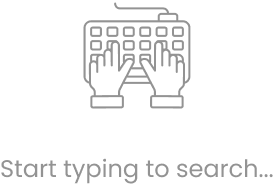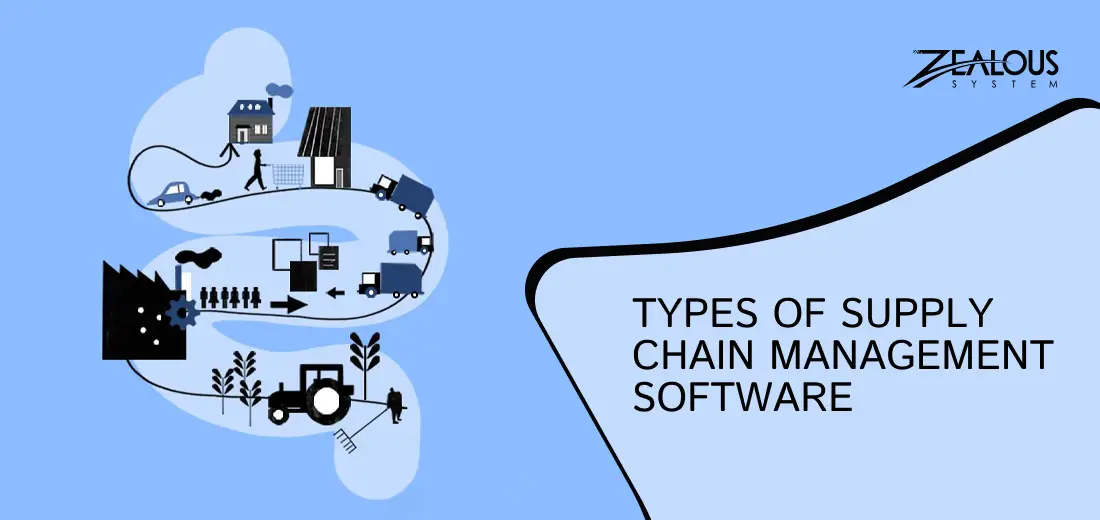


In today’s connected world, managing supply chains has become more complicated, requiring advanced tools to keep things running smoothly and efficiently. Various types of supply chain management software exist to help businesses tackle these challenges effectively.
Supply chains involve a web of processes happening simultaneously worldwide, from sourcing raw materials to delivering finished products. This complexity can be tough to manage, especially when unexpected events like pandemics or geopolitical issues disrupt operations. To address these challenges, many organizations are turning to logistics software solutions. With so many options available, selecting the best supply chain management software for your business can be tricky.
This article reviews the main types of supply chain management software, providing examples of popular solutions and discussing their functionalities. We’ll also share a list of supply chain management software tools that can simplify your operations, boost efficiency, and improve decision-making. Discover how these software tools for supply chain management can enhance your business processes and help you stay ahead in a rapidly changing environment.
Supply chain management software helps businesses keep track of their supply chains. It makes managing everything easier, from ordering raw materials to shipping finished products. The software tracks how much stock you have and reminds you when it’s time to reorder. It also helps with processing and tracking customer orders.
Additionally, supply chain management software keeps an eye on suppliers to make sure you get what you need on time and finds the best ways to ship your products. By predicting future needs based on sales data, this software helps businesses plan better and save money. Overall, it makes running a business smoother and more efficient.
Explore the list below for the ten types of supply chain management software that can revolutionize the way businesses handle logistics and optimize their entire supply chain.
Order processing is one type of supply chain management software that focuses on handling orders quickly and efficiently. Since how fast you process new requests impacts customer satisfaction and revenue, it’s crucial for this part of the business to run smoothly.
Many organizations use these tools to automate and speed up many daily tasks. A good order processing software should be able to:
By automating these tasks, the system lets employees concentrate on more important work instead of repetitive paperwork.
Inventory management system helps businesses control and optimize their inventory by tracking stock in real-time, automating orders, and forecasting demand. With inventory management software, companies can easily monitor incoming and outgoing goods, maintain the right stock levels, and avoid bottlenecks.
For supply chain companies, inventory management software also optimizes warehouse space, simplify production planning, and predicts demand to prevent under-stocks.
Additionally, warehouse management tools powered by artificial intelligence can group products in a way that simplifies logistics. For example, they can bundle shipments that need to leave around the same time, making it easier to retrieve them.
Warehouses that store, package, and ship goods use warehouse management software to keep track of their stock. This software helps businesses know exactly how much inventory they have, where it’s located, and how it’s moving in and out of the warehouse. By using warehouse management software, companies can organize and streamline tasks like storing, picking, packing, and shipping items. This reduces inefficiencies and cuts down on waste.
Additionally, many of these programs include tools for managing labor, allocating resources, and generating reports. These features help businesses make better use of their workforce, ensure resources are used effectively, and keep track of important data for decision-making
Shipping goods and materials is a crucial part of the supply chain, and transportation management software helps businesses optimize each step. With transportation management system, companies can choose the best carrier based on cost, speed, reliability, and capacity. This software also finds the most efficient shipping routes for faster, more affordable deliveries.
Another important feature of transportation management software is shipment tracking, which lets you see exactly where your shipments are in real-time. This means you can get instant updates on the location of your products, whether they’re being shipped across town or around the world.
Demand planning software is another type of supply chain management software that helps businesses predict what customers will want to buy in the future. It uses algorithms that analyze buying trends, past sales data, and input from different teams within the company.
Businesses use demand planning software to ensure they have the right amount of products available. It helps them keep inventory levels balanced, so they don’t run out of stock or hold too much, which can save money on storage. Demand planning software also allows businesses to align their production schedules with expected demand, ensuring they produce just enough to meet customer needs without overproducing.
ERP software brings together different parts of a business into one centralized system. It combines inventory management, customer relationship management (CRM), financial planning, human resources, and other key business functions in a single platform. This integration gives users a complete view of the organization’s operations, allowing them to access real-time information and make informed decisions based on accurate data.
In supply chain operations, ERP software plays a crucial role. It helps businesses simplify various processes such as production planning, procurement, manufacturing, stock control, and warehouse management. By managing these tasks in one place, businesses can improve efficiency, reduce errors, and respond quickly to changes in demand or supply.
Supplier relationship management (SRM) software helps businesses improve how they work with their suppliers. It makes communication easier and keeps everything organized in one place. With SRM software, companies can store and manage all their supplier information, like contact details and contract terms. It also automates tasks like creating purchase orders and tracking how well suppliers are performing.
Most SRM software includes built-in tools for communication, allowing businesses and suppliers to easily share messages and documents. This helps both sides stay on the same page and avoid misunderstandings.
Scheduling supply chain management (SCM) software is a cloud-based tool that makes managing employee schedules easier. It helps automate tasks like creating work schedules, tracking time, and communicating with staff. By using this software, businesses can avoid payroll problems, keep employees happier, and reduce conflicts in scheduling.
Here are some key features of a scheduling platform:
Quality management software helps businesses handle their quality management processes effectively. It helps businesses to identify and prevent defects in products or services before they become problems. By tracking and managing quality data, this software ensures that products and services meet high standards.
With quality management software, businesses can improve their quality control, leading to happier customers and lower costs. It also helps simplify processes, making it easier to spot and fix issues quickly. Overall, using QMS software can lead to better quality, greater customer satisfaction, and reduced expenses.
Business Intelligence (BI) and analytics software helps companies gather, analyze, and display data from their supply chains. With this software, businesses can spot trends, patterns, and unusual changes in their supply chains.
By understanding this information, companies can make smarter decisions about how they manage their supply chains. This software helps businesses run more smoothly and cut costs by improving efficiency.
The right supply chain management software for your business will depend on your specific needs and requirements. Some factors to consider include:
One of the foundational considerations when choosing SCM software is the size of your business. Whether you operate a small business, a mid-sized enterprise, or a large corporation, the scalability and features of the supply chain management software must match the scale of your operations.
A system that is too robust for a small business may lead to unnecessary complexity, while an insufficient system for a larger enterprise could result in operational bottlenecks.
The nature of the products or services your business offers plays a crucial role in selecting the right SCM software. Different industries have unique supply chain requirements, and a tailored solution can optimize processes.
For example, businesses dealing with perishable goods may require real-time tracking and temperature control features, while those in the manufacturing sector might prioritize inventory management and production planning capabilities.
Your budget is a practical constraint that shapes the available options. While investing in robust supply chain management software, it’s crucial to find a balance that aligns with your financial resources.
Consider both upfront costs and ongoing expenses, including maintenance, training, and potential scalability expenses. A well-aligned budget ensures that you get the most value from your SCM investment.
For a smooth transition and ongoing operations, it’s crucial that the new supply chain management software integrates well with your current IT setup. Check how the software will work with your existing systems, databases, and applications. Good compatibility ensures accurate data, fewer errors, and better overall system performance.
The complexity of your supply chain is a key determinant in choosing SCM software. Businesses with intricate supply chains involving multiple suppliers, distribution channels, and international logistics may require advanced features such as real-time visibility, demand forecasting, and risk management tools. Evaluate whether the SCM solution can adapt to the intricacies of your supply chain for optimal performance.
Supply chain management software has become an indispensable tool for businesses of all sizes, providing them with the capability to streamline operations, enhance visibility, and make informed decisions across the entire supply chain network.
By leveraging the right SCM software, businesses can achieve greater efficiency, reduce costs, and improve customer satisfaction, ultimately driving business growth and success. Partnering with a reputable software development company ensures the seamless integration and customization of these software solutions, tailoring them to the unique needs and objectives of your business.
Our team is always eager to know what you are looking for. Drop them a Hi!
Comments